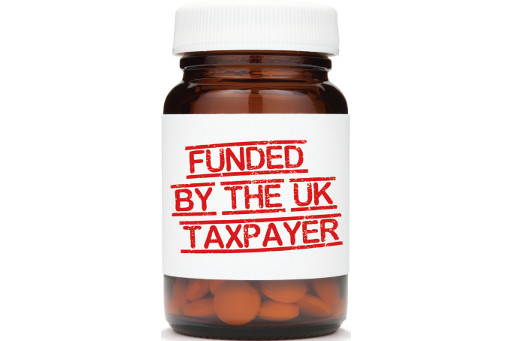Analysis

In the news: Putting a price on health?
In Analysis
It’s time to delve deeper into health discussions. Broaden your understanding of a range of pharmacy news and topics through in-depth analysis and insight.Bookmark
Record learning outcomes
As prescribing rates continue to soar, health secretary Jeremy Hunt has unveiled plans to put price tags on medicines packs – a move that could do more harm than good, according to pharmacy bodies.Â
In an attempt to reduce costs and boost adherence, Secretary of State for Health Jeremy Hunt has proposed putting an ‘indicative price’ on packs of medicines costing over £20, along with a stamp stating “funded by the UK taxpayerâ€.
 “This will not just reduce waste by reminding people of the cost of medicine, but also improve patient care by boosting adherence to drug regimes,†said Mr Hunt in a speech to the Local Government Association earlier this month. It is estimated that between 30 and 50 per cent of prescription drugs are not taken as intended, contributing to £300m of medicines waste each year. Responding to the proposal, chair of the Royal Pharmaceutical Society’s English Pharmacy Board, Sandra Gidley, welcomed “the intent to make sure people use their prescribed medicines,†but cautioned that the proposal could ultimately result in an increase in NHS costs if patients “through knowing the cost of their medicine felt they were a burden on the NHS and for that reason didn’t collect their medicineâ€.
“This will not just reduce waste by reminding people of the cost of medicine, but also improve patient care by boosting adherence to drug regimes,†said Mr Hunt in a speech to the Local Government Association earlier this month. It is estimated that between 30 and 50 per cent of prescription drugs are not taken as intended, contributing to £300m of medicines waste each year. Responding to the proposal, chair of the Royal Pharmaceutical Society’s English Pharmacy Board, Sandra Gidley, welcomed “the intent to make sure people use their prescribed medicines,†but cautioned that the proposal could ultimately result in an increase in NHS costs if patients “through knowing the cost of their medicine felt they were a burden on the NHS and for that reason didn’t collect their medicineâ€.
Pharmacy Voice agreed that some patients could be deterred from taking their medicines due to worries over “the impact on the public purse†and also expressed concerns that medicines price tags could lead to “increased administrative and bureaucratic burdens on frontline pharmacy teamsâ€, who may have to explain complex medicine pricing to patients and the public.
Complex reasons
The RPS and Pharmacy Voice pointed out that there are many complex reasons why patients don’t always take their medicines as prescribed, and that community pharmacies are already helping to reduce medicines waste and improve adherence through services like MURs and the NMS.
“Although knowledge of the cost of medicines may play a part, it is equally important we focus on factors such as people’s understanding of the side-effects and benefits from medicines,†said Sandra Gidley. Pharmacy Voice also called for the wider implementation of services that focus on patients’ need for medicines, such as repeat dispensing, arguing that ultimately “the value of a medicine to an individual is about a good deal more than the priceâ€.
Cost of medicines
Figures released by the Health and Social Care Information Centre (HSCIC) show that the overall net ingredient cost (NIC) of prescription medicines increased by £227.5m in 2014, with the figure reaching £8.85bn per year. Putting the biggest strain on the NHS budget were medicines used to prevent blood clots and those used in the treatment of epilepsy and diabetes. In just one year, the cost of anticoagulants increased by £44.8m, while a further £46.6m was spent on anti-epileptics.
The cost of medicines for diabetes rose by £55.3m to stand at £849m. Despite prescription charges in England, nearly 90 per cent of prescriptions were dispensed free of charge last year, due to the ageing population and rising numbers of people living with long-term conditions. Three in five prescriptions were for patients aged 60 and over, which accounted for over half of the total NIC for all prescriptions.
Over 1.06 billion prescription items were dispensed in the community in England in 2014, a rise of 3.3 per cent (equivalent to 34.5 million items) on the previous 12 months, and an increase of over 50 per cent since 2004, according to the HSCIC.
